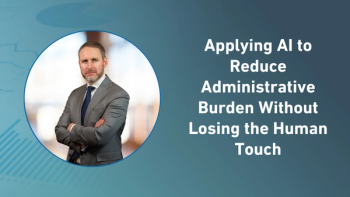
Getting the "Right" Patient Input to Decision-Making
Rising patient engagement in drug development has been welcomed when it comes to discussions of policy. In Europe, a new initiative has emerged that aims to improve this theme by finding the right balance into patient links with decision-making on medicines.
The rising engagement of patients in discussions of medicines policy is – in principle – to be welcomed. They have clear rights, and not just because they are the ultimate customers of the medicines development process. Their perspective can help also in the regulatory process, as the European Medicines Agency has acknowledged for years, with its growing range of systematic interactions – most recently including patient representatives in some of its scientific evaluations of individual products.
It is a two-way street, too. For everyone concerned in healthcare, better-informed patients can help make care more effective, with improved compliance, more sophisticated relations with treating doctors, and deeper understanding of the challenges of drug development, regulation and reimbursement.
But this two-way street can also prove to be a two-edged sword. Customers' views and demands may not always share the logic of the systems that generate their products. It makes sense to seek customers' views on the profile of aircraft seats, but they have less to contribute on airframe design, avionics, or navigation. Similarly, not every view of every patient is necessarily going to be helpful in determining the most appropriate scientific, clinical, regulatory or business approach to medicines. A vociferous but ill-informed patient can make a doctor's life problematic. Individual patient needs can be difficult to reconcile with the harsh economic realities of limited resources. Imposition of well-meaning but ill-conceived controls on the research process may run counter to the development of effective treatments.
So how to get the right balance into patient links with decision-making on medicines? A European project that kicked off at the end of October is aiming to explore this challenge. The Patient Preferences in Benefit-Risk Assessments during the Drug Life Cycle (PREFER) project (
The project, funded by the EU's joint-venture in drug research, the Innovative Medicines Initiative, will focus on three disease areas where patient and clinical research partners have expertise: cancer, rheumatoid arthritis and neuromuscular disorders. It is co-led by Uppsala University in Sweden and by Novartis, and its 33 partners include academic institutions, patient organizations, health technology assessment bodies, small companies and the pharmaceutical industry. Aptly, it has four patient organizations among its advisors – the European Patients Forum, the European Cancer Patients Coalition, the International Alliance of Patients’ Organizations, and Muscular Dystrophy UK.
According to Ulrik Kihlbom, one of the Swedish academics involved, the challenge is very real and needs reflection among a wide range of partners. How should a reimbursement authority weigh the patient perspective against cost-effectiveness when making a reimbursement decision, he ponders. Or how should a regulatory authority weigh patient demands against safety concerns? Patient organization views need to be representative of the actual views patients have, and be non-biased. And for the individual patient, at what point should his or her voice be listened to? When first diagnosed, or when under treatment, or when convalescing? "The patient’s preferences will probably change during the trajectory of illness," he suggests. "Do you know when your preferences are such that your physician should listen to them? And when they merit less attention?" He concludes: "Everybody agrees that the patient perspective should have a weight, but no one has an established scale."
At a time in Europe, when the patients' voices are being increasingly solicited on issues as wide as access to health and social care, availability of medicines, health technology assessment, promotion of patients’ needs as a driver of R&D, and the shaping of broad health policy, the PREFER initiative is timely. The obvious question, however, is whether Europe can wait five years for its recommendations, since "patient power" is already exerting itself more and more strongly, whether it be "right" or wrong.
Newsletter
Stay current in clinical research with Applied Clinical Trials, providing expert insights, regulatory updates, and practical strategies for successful clinical trial design and execution.




